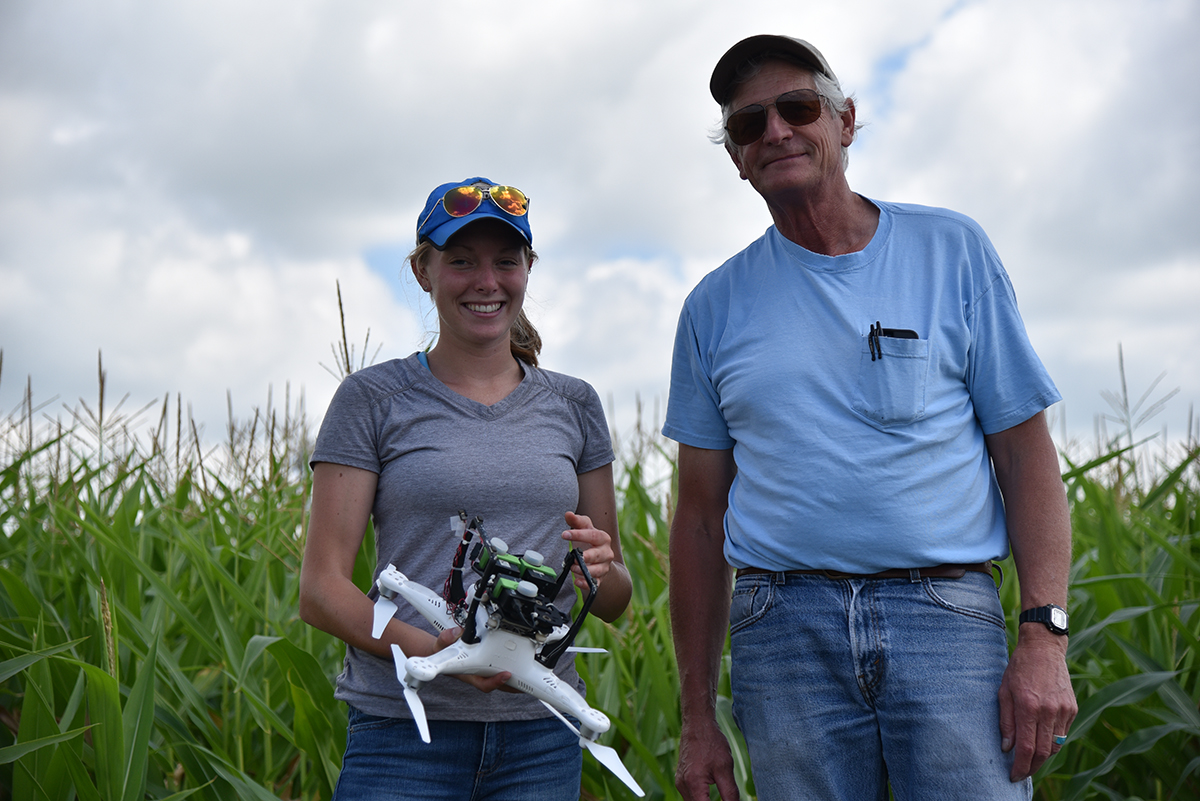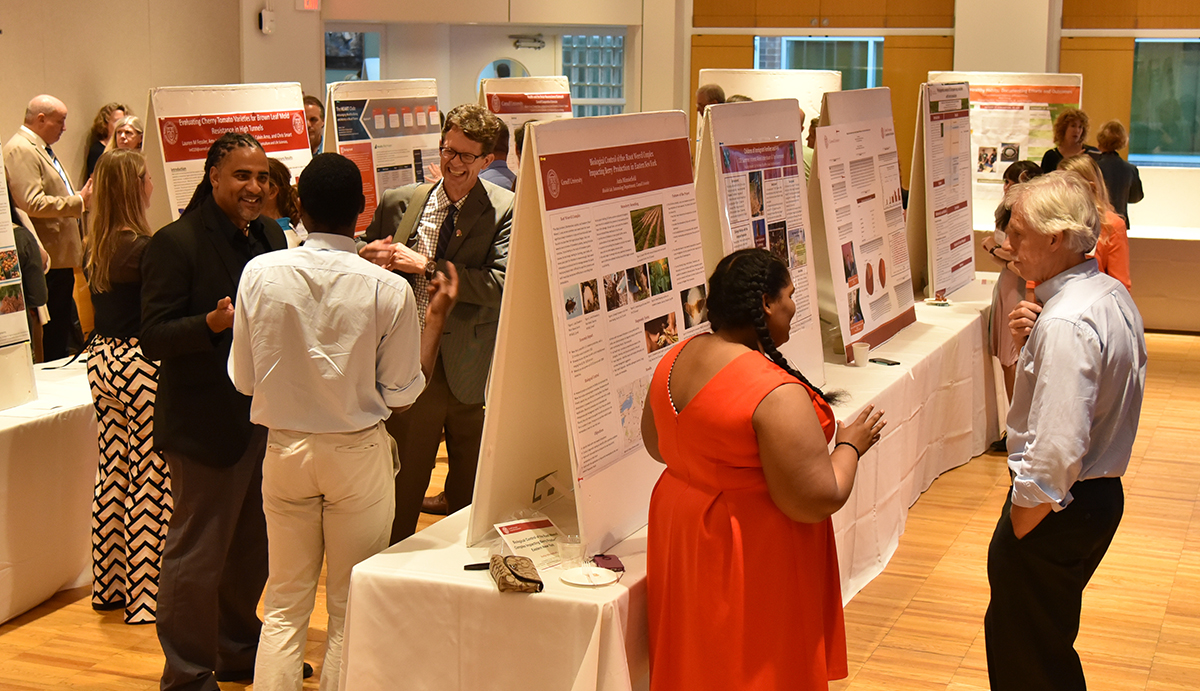Students blossom in extension summer internships
By R.J. Anderson

From using drones to track nutrient management in upstate cornfields to working with Head Start programs in Harlem, Cornell Cooperative Extension (CCE) interns helped communities across New York state this summer. Along the way, they learned the value extension brings to applied research and the important role Cornell plays as New York’s land-grant university.
For nearly a decade, faculty and staff from the College of Human Ecology (CHE) and College of Agriculture and Life Sciences (CALS) have teamed with county CCE offices to provide 10-week summer internship opportunities for Cornell undergraduate students. “This year we had 35 students in the field working on projects ranging from bilingual dairy education and food hub development to improving the quality of adult-youth relationships and health, and brain neuroscience outreach,” said CCE Director Chris Watkins at extension’s internship reception Sept. 21.
“Our internships are unique in that students work on projects proposed by faculty and staff from CALS and CHE and are then hosted by extension educators at CCE offices all over New York state and New York City,” Watkins said.
Cornell Vice Provost Judy Appleton said the intern projects demonstrate the impact that can only be achieved with knowledge sharing. “The CCE association educators share their knowledge with students and faculty, to our benefit,” Appleton said. “Meanwhile, students share their learning with communities in ways that are beneficial.”
Rachel Dunifon, CHE associate dean of research and outreach, said the CCE intern program “builds on two key strengths we have here at Cornell – our amazing undergraduate students and our mission as a land-grant institution. … Interns equip individuals and families to make changes in their own communities. Essentially, our CCE interns put the mission of the college in action.”

Deborah Seok ’17, a CHE human development major, worked in Harlem, where she interned with 4-H Head Start Programs, leading a pair of studies centered on early intervention to promote spatial skill development in young children.
“We wanted to see whether providing constructive toys, like building blocks and puzzles, to families will enhance toddlers’ spatial skills,” said Seok, whose work was supervised by Marianella Casasola, associate professor of human development in CHE and director of the Cornell Infant Studies Lab. “Working in Harlem allowed me to focus on families from especially disadvantaged backgrounds and target environmental factors such as low socio-economic status.
“This summer gave me a glimpse of what to expect from a research and education-related career,” Seok added. “It was a great but important challenge to maintain communication with my professor, the school staff and the families I worked with.”
Max Pfeffer, CALS senior associate dean, believes the collaboration between CALS, CHE and CCE to allow Cornell students to tackle real-world problems makes the internships special. “All of us strive to provide students with access to world-class faculty and facilities,” Pfeffer said. “Beyond the classroom and lab, we make it a priority to also provide engaged experiential learning opportunities so our students may get the necessary hands-on experience that will help make them tomorrow’s leaders in whatever they do.”
Lindsay Chamberlain ’17, who was featured in a video presented at the reception, spent her summer participating in precision agriculture trials run by the CALS Nutrient Management Spear Program (NMSP). Under the tutelage of NMSP Director Quirine Ketterings, Chamberlain used instruments, including drones, to collect data on cornfield nitrogen and growth rates. She traveled between a number of western New York farms and the Cornell Musgrave Research Farm, and presented her research findings in late August.
“Quirine really encourages undergraduates to get involved in projects and presentations that might typically be reserved for more experienced researchers,” Chamberlain said. “As an intern, that makes you feel important, trusted and responsible. It also gives you a great deal of confidence going forward.”
Planning to pursue a master’s degree in agronomy after graduating next spring, Chamberlain says she is looking for a program focused on extension. “I enjoy working in an applied research environment,” she said. “And I think the best way to get information to growers is by making personal connections – get them involved and talking to researchers.”
R.J. Anderson is a writer/communications specialist with Cornell Cooperative Extension.
Media Contact
Get Cornell news delivered right to your inbox.
Subscribe